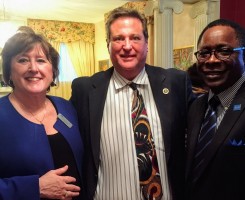This Monday, Sept. 3, is a national holiday in honor of Labor Day, celebrated not only with picnics and gatherings, but also a day of rest from our professional labors.
In this post, I would like to recognize another kind of labor, one with which many of us are familiar; the not celebrated enough, labor of love.
Once you find something good
you have to take care of it
you have to let it grow.
~A Good Year
Driving through Napa Valley in crush season with the family, we noticed what we thought, was an April shower. Tiny sprinkles covered the car windshield, even though the weather was sunny. Turning on the wipers to clear the glass, we realized that instead of rain, we were being splashed with drops of grape juice from the harvest truckload in front of us! As grape juice smeared across our windshield, we all laughed. We were in wine country, and it was CRUSH!
Napa Valley is one of the most enjoyable places I have experienced. The air, warm and dry, is pleasant to the skin, supportive of physical and emotional well-being. Sights like Muir Woods are memorable and visiting the wineries is fun, informative and palette pleasing. We had the pleasure of touring several of the well-known wineries. We learned a great deal about turning the fruit of the vine into the drink which has filled many a glass, been lifted in toast, and satisfied the lips of lovers and friends throughout history and the world.
Some of the most interesting information was about the aging of wine. Before visiting the wineries, my understanding was that wine was better with aging. Upon visiting a few wineries, I learned it is the producing, with an eye toward long-term storage and maturing of a wine, where the advantages of time enhanced the balance, flavor and complexities in the process of what we know as aging. While agreeable wines will have an age of five to seven years, other wines, which are produced to mellow over time will get better for up to ten or twelve years. French Bordeaux and Cabernet Sauvignon, purposed for vintage, are known for getting better up to about thirty years. Dessert wines, like Sauterne or other late harvest wines, like Riesling and Gewürztraminer, get better over an even longer period of time, thirty, forty years and more.
One of my favorite movies, A Good Year, with Russell Crowe and Marion Cotilliard is centered around wine as a metaphor for maturing and nurturing the complexities of life with harmony and balance.
Based on the novel of the same name, the 2006 film by Ridley Scott is set in London and beautiful Provence. It is the story of young Max Skinner, played by Russell Crowe, who spends summer holidays in Provence with his Uncle Henry. There he is introduced to a few lessons of life, as well as a few of the finer things at his uncle’s vineyard estate in southeastern France.
One of Max’s introductions to the finer things of life happens one afternoon while he lay by the estate pool.
He is told by his uncle to entertain a visitor’s daughter, someone his age, named Fanny Chenal. For a while, Max rests in a lounge chair and reads on one side of the pool, while Fanny, sits in a chair on the other side of the pool. After several moments, we see her dive into the pool and swim across to the other side where Max lay reading. Lifting herself halfway out of the pool to face to Max, she kisses him sweetly and whispers in his ear, “Forgive my lips, they find joy in the most unusual places.”
Fast forward 25 years later. Max has enjoyed life as a successful and aggressive investment trader in London.
Upon the death of his uncle, he becomes the sole beneficiary of the estate. He travels to Provence with plans to sell the estate, wrap up the deal, take the profit and return home to London. However, things don’t go according to his plan, and he is forced to remain in Provence at his uncle’s estate. In doing so, he is also forced, into a new acquaintance with his uncle’s estate, his memory, his life and the opportunity to re-learn some lessons of life.
One of the lessons Max re-learns is what it means to live life with a sense of purpose and to love something, more than one’s self. This he learns, from Monsieur Duflot, his Uncle’s estate winemaker, and whom Max has known most of his life, but only now appreciated.
He also realizes that the summer months he spent on the estate with his Uncle Henry, when he was a child, were those he considered, “the summers that saved his life”. For his uncle was the one that gifted him with the business savvy that made him successful.
Max realizes too, he failed to grasp the valuable “playing lessons” of life his uncle tried to teach him, that being; “A man learns nothing from winning. The act of losing, however, can elicit great wisdom, not the least of which is how much more enjoyable it is to win. It is inevitable to lose now and then. The trick is not to make a habit of it.”
During his stay, Max also falls in love with the beautiful Marion Cotillard, and over the course of time, finds out she was the little girl who whispered those memorable words in his ear by the pool twenty-five years ago. Once again, he grasps a life lesson, one not previously understood, regarding his own maturing; Unexpected experiences of life and love, often bring something good, and when we find it, we take care of it. We let it grow.
Life and love.
In our culture today, it can sometimes seem that these two experiences are diametrically opposed. The professional responsibilities and social expectations in our lives can often become consuming demands, and interfere with the most important relationships in our lives, like husbands or wives.
When that happens, frustration can set in, and all too often, couples begin to experience drifting apart – not because they want to, but because they don’t know how to bring back the closeness they once had between them. But it is possible. Instead of seeing the drifting apart as unalterable, recognizing it as an invitation to turn toward each other, can open the door of repair, to greater understanding, closer connection, and deeper intimacy in our love relationships; that something good we have found, that we want to take care of and let it grow.
The concept of love often tends to be loosely defined and generally understood as a feeling of wanting to be close with another individual. Most of us enter the state, believing the feeling will last forever, not considering that there could be stages to this thing called love, and maybe it would be good to learn what those stages are so we could kind of know what to expect and hopefully how to navigate them.
From an Imago Relationship Therapy perspective, founded by Harville and Helen Hendrix, we learn that there are two predictable stages of beginning love: 1) attraction and romance and 2) frustration and the power struggle. We probably can all identify with the feelings of these two stages. We might also understand that without a path of repair, drifting apart becomes a possibility, and maybe even a predictability.
But another stage, mature love, can be experienced as well. From an Imago perspective, mature love can be defined as a conscious love. It is the stage at which a couple has developed the safety and trust with each other to choose to recommit every time a frustration and power struggle take place. It is the stage in which doing the work of relationship and repair has become a part of the framework of commitment, rewarding the couple with new awakening to each other, and the experience of renewing safety, joy and passionate love.
Mature love acknowledges that power struggles in love are inevitable, and the process of repair, including making choices for re-commitment, is necessary, in order to maintain connection, safety, joy and passionate love we want to keep. And each time repair takes place, the likelihood increases that it will be easier and faster because of having nurtured the qualities of empathy and understanding. Past wounds have been able to find healing, making disconnections less explosive and connection easier.
“Yeah, Yeah. It’ll work for a while, then we’ll get tired and eventually we’ll be unhappy with each other again.” This statement may be going through some of your minds. What you really might be wanting to know is ,“Is it worth it?” I would say it is.
From a moral value system perspective, marriage gives a framework for healthy functioning psychologically, mentally, emotionally and spiritually. Sociologically, the family system has historically remained the context in which individuals develop within sustained personal contact and intrinsically adopt the capacity to be able to be responsible for others. This information alone offers sufficient reason to support staying in marriage. But wait! There’s more!
In the resource called The “Environment of Evolutionary Adaptedness” (EEA) we find statistical evidence acknowledging a composite of information revealing a biological predisposition toward a behavioral selection of pressures regarding fidelity. These behavioral selections are indicators of causal adaptations affecting genes to increase to a recognized state of what is considered typical and persistent, predicting a favoring of fidelity. The implication suggests a biological hard-wiring for fidelity and commitment.
This statistical evidence, resulting from pressure selections, recognizes specific environmental regularities as having, what is termed, a systematic impact on reproduction, the acknowledged proponent for selecting a mate. By virtue of having endured long enough to create an evolutionary design on adaptation, the identified regularities have occurred with a systematic frequency gain, and have become valid indications for commitment and fidelity to be considered hardwired.
These behaviors include, from Lieberman et al., 2007:
- Behaviors that maintain parental bonds: Commitment to each other. Passion and Intimacy support committed relationships and benefit familial relationships.
- Behaviors that result from probabilistic relationships due to sexual infidelity:
i.e. Lowered relationship value after infidelity. Infidelity has a negative effect on committed relationships. - Behaviors that identify relationship problems, indicating positive correlations regarding infidelity and investment and return. i.e. Abstaining from infidelity will result in a positive return.
What this translates to, as I understand, is that the sympathetic nervous system reveals a predisposition of adaptation to support recognized familial bonds by responding with a negative bias to those behaviors which interrupt commitment and fidelity. From these observations, we might statistically draw the conclusion that we are not designed to engage in serial partnerships, acting out sexual drives or lovin’ and leavin’. We have a sympathetic nervous system, which responds with regular frequency, typically and persistently, in a manner which increases selection responses to favor fidelity.
Interpersonal Neurobiology also indicates that our mate attraction is a result of hard-wiring of attachment to our primary caregivers. The neurobiological response to another as familiar informs our emotions that we are a fit. From the above statistical evidence regarding frequency selection occurrence, it seems that once we find a fit, we are wired for long-term commitment as well.
Over the years, I have seen many marriages fall apart, for different reasons. There are those that end, for safety reasons. All to often, many end because of unresolvable conflict. There is a hope to marry someone easier to get along with. And two people once attracted and committed to each other suffer loss, I believe, because they lacked knowledge.
They did not have the chance to learn, that conflict did not mean they were not meant for each other. The conflict indicated a need to figure out how to understand each other. It revealed a call for help for skills to communicate with understanding. The conflict could be viewed as an expression of fighting for the life of the relationship. Perhaps if they had known, they could have experienced the joy of seeing conflict and power struggle turn into something good they had found, something they wanted to take care of and, something they wanted to let grow.
Growing into mature love in a marriage relationship where conscious responses inform our behaviors and emotions, takes work. It takes understanding. It takes responsibility. It takes empathy. It takes creativity. It takes joy. It takes laughter. It takes the masculine. It takes the feminine.
Growing love in marriage where conscious responses inform our behaviors and emotions also gives. It gives a safe container where we can express our thoughts and feelings. It gives a place of trust to be vulnerable. It gives questions so we can find the answer together by talking and listening. It gives history as a reservoir of wisdom and strength. It gives each other, opening the door to creativity and responsiveness. It gives acceptance, of weakness, failure, dark sides and bad days. It gives the other. It gives joy, for sweet sentiments, surprises, and inside jokes. It gives tenderness of quiet cuddles, sensitive touch and soft whispers that we heard many years ago, letting us know we have found something good, to take care of, and to let grow.
A toast to the finer things! Mature wine. Mature love and the labor of love.
Funny how I feel more myself with you
Than anybody else that I ever knew
I hear it in your voice, see it in your face
You’ve become the memory I can’t erase
It wasn’t in the plan, not that I could see
Suddenly a miracle came to me
Safe within your arms, I can say what’s true
Nothing in the world I would keep from you
You could have been anyone at all
An old friend calling out of the blue
I’m so glad it was you
~Carole King
Paulette Jackson
Licensed Professional Counselor
photo credit: Pexels-freestock closeup of wine glasses 1123260













